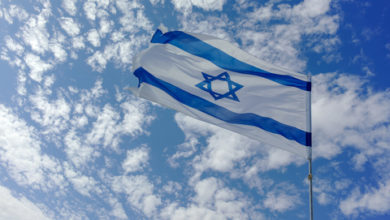The New Calf
The Haftarah of this week’s Torah portion of Mishpatim is from the prophecy of Jeremiah (34:8-22, 33:25-26). It discusses the pact that Zedekiah, the last King of Judah, made with the leaders of the nation during the last days before Jerusalem was conquered. In the pact, the entire nation agreed to free their Jewish slaves and maidservants. Evidently the purpose of this covenant was not merely to observe the mitzva of the Torah and set the slaves free after a maximum of six years but rather to completely abolish the institution of slavery of Jews. (We can assume that the laws of slavery were not observed properly at the time, based on the fact that there were not only male slaves but maidservants at the time. This is not reasonable in view of the requirement to free all the female slaves when they reached the age of twelve.) Thus, this pact was meant to be an enhancement of the laws of slavery among Jews, which allowed slavery for a limited time. Evidently by completely abolishing the institution of Jewish slavery, the leaders of the nation wanted to strengthen the covenant of their fathers who left Egypt by virtue of a “kal vachomer,” a logical inference: If the covenant made at the time of the Exodus led to partial release of the slaves in Israel, the complete abolition of slavery can provide a stronger covenant that can save the Jews in the war against the Kasdim.
However, the people did not fulfill their promise, and they enslaved the slaves and maidservants who had been set free (34:11). With this failure in the background, the prophet reminds the people of the original Torah law limiting the duration of slavery to six years. (Here, as opposed to the original pact of Zedekiah, only the male slaves are mentioned, since as noted above it would have been very rare for a maid to serve for as long as six years.) This is as if to say: If only you would observe the minimal requirements of Torah law. I did not ask you to observe special piety, which would have been defines as doing “what is proper in the eyes of G-d” [23:15]. But you did not even do this.
This failure so soon after the pact was signed can be compared to the sin of the Golden Calf which took place right after the covenant was made at Mount Sinai. Then the nation fell into the trap of idol worship because of their thirst for divine activity. And this may help explain the way the pact in the time of Zedekiah is described by the prophet. It is written, “the calf which was divided into two, and then they passed between them” [34:18]. It is true that Rashi notes, “It is the custom of people making a pact to divide an animal into two parts and to pass in between them, as is written, ‘those who pass between the halves of the calf’ [Jeremiah 34:19].” However, it is doubtful that this ritual was performed for the pact of Zedekiah, which took place in the Temple. It is more reasonable to assume that the verse in the case of Zedekiah is a metaphor, comparing the actions of the heads of the nation in his time to those of the people who made the original Golden Calf.
Just as the Golden Calf did not abrogate the eternal covenant with Israel, in our case the inappropriate actions could not annul the eternity of Israel. And that is why the Haftarah goes back and ends with the two verses which precede the story of the broken pact, promising that G-d will never despise the offspring of Abraham, Isaac, and Jacob, or the House of David (33:25-26).
Source: “NOTES FROM THE HAFTARAH” – a biweekly column in Shabbat B’Shabbato (Zomet Institute) See: http://www.zomet.org.il/eng – Mishpatim 5776, issue 1610.
———————————–
Everyone who has taken part in this course has been touched
and has expressed heart – warming enthusiasm about the wonderful and meaningful content of this Noahide course.
We receive much feedback from people who have been seeking the truth — the dynasty of those who guard the secrets (the Israel nation) — for many years,
and feel that they have finally found
what they had been looking for.
— Here is the link to the course —



